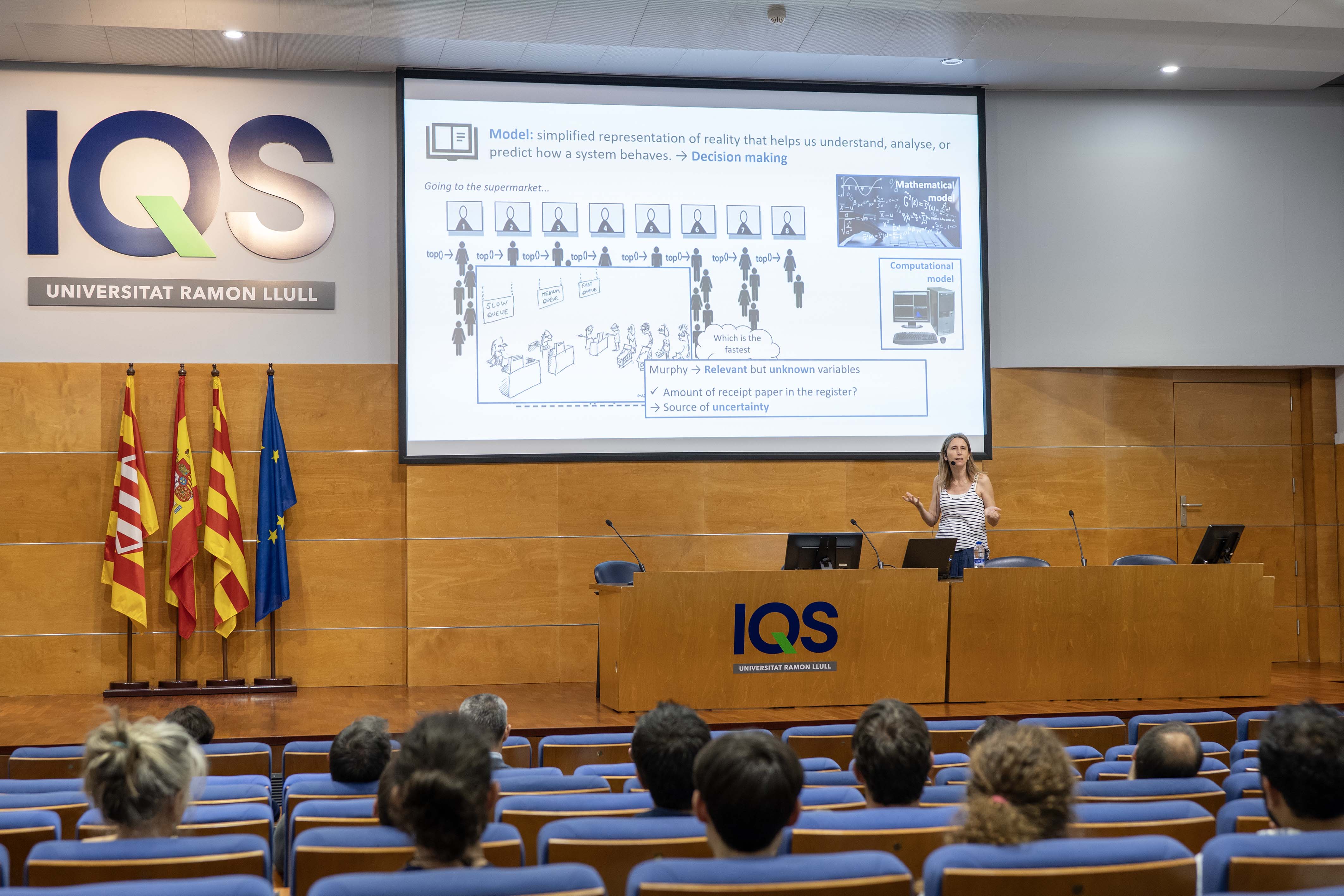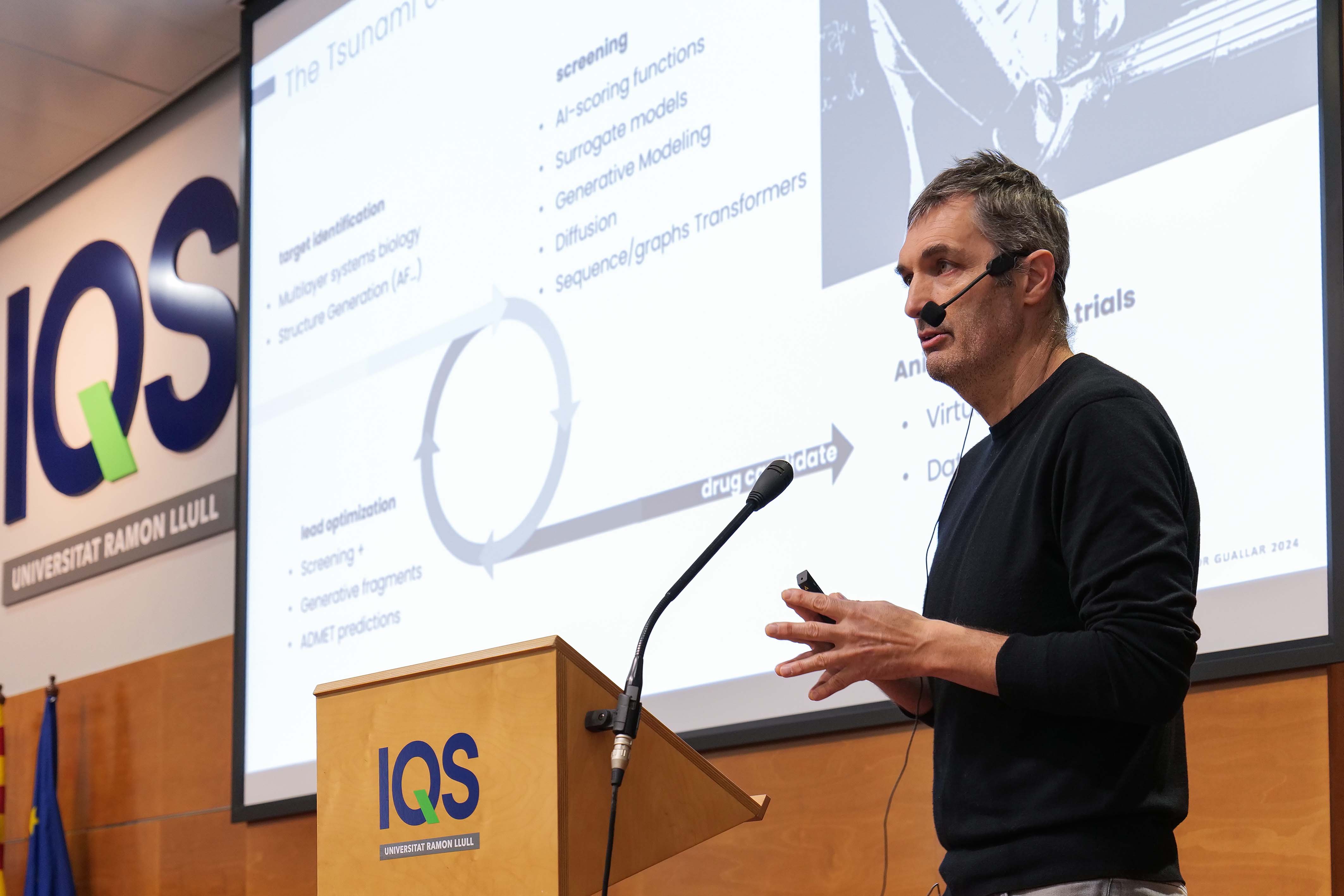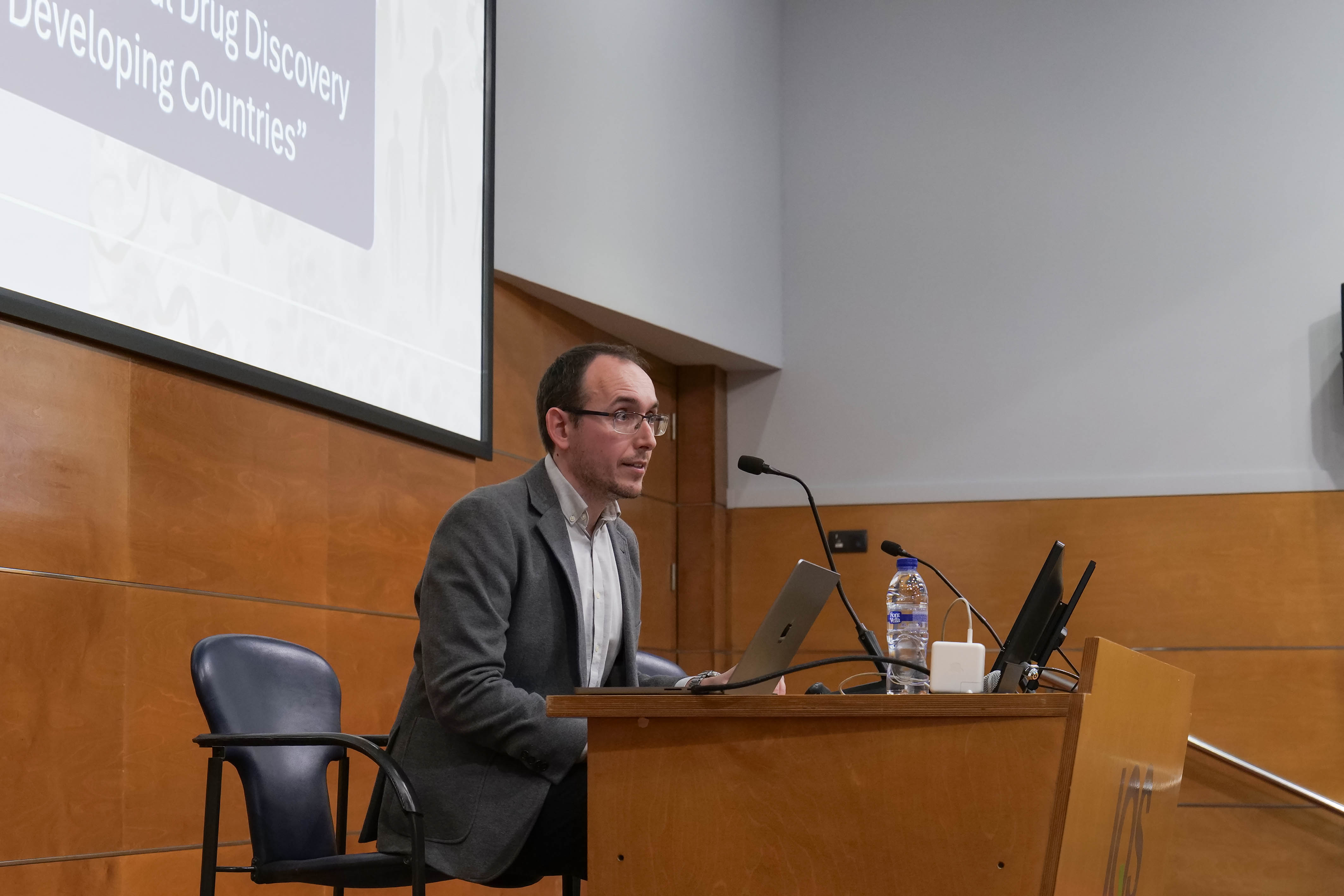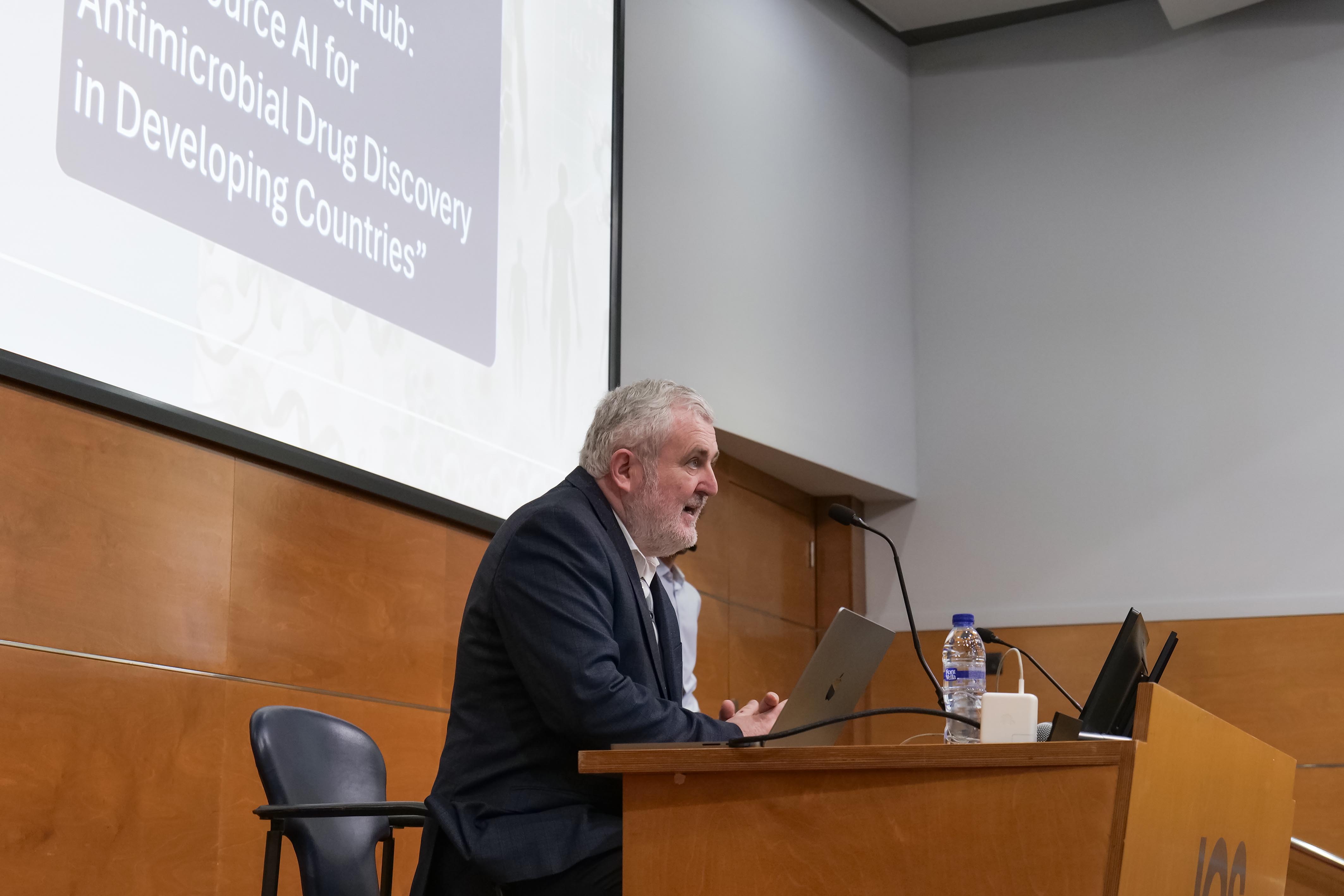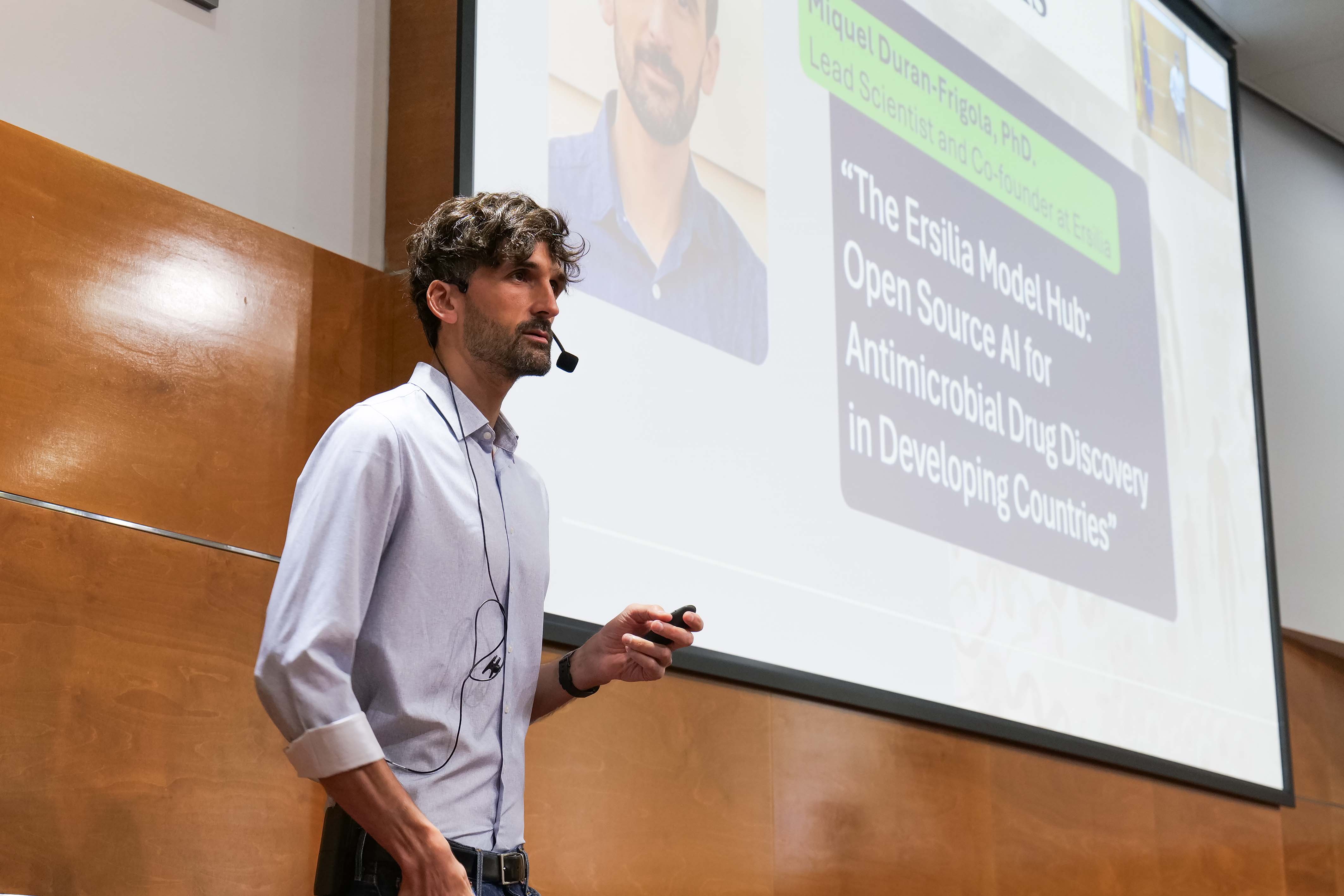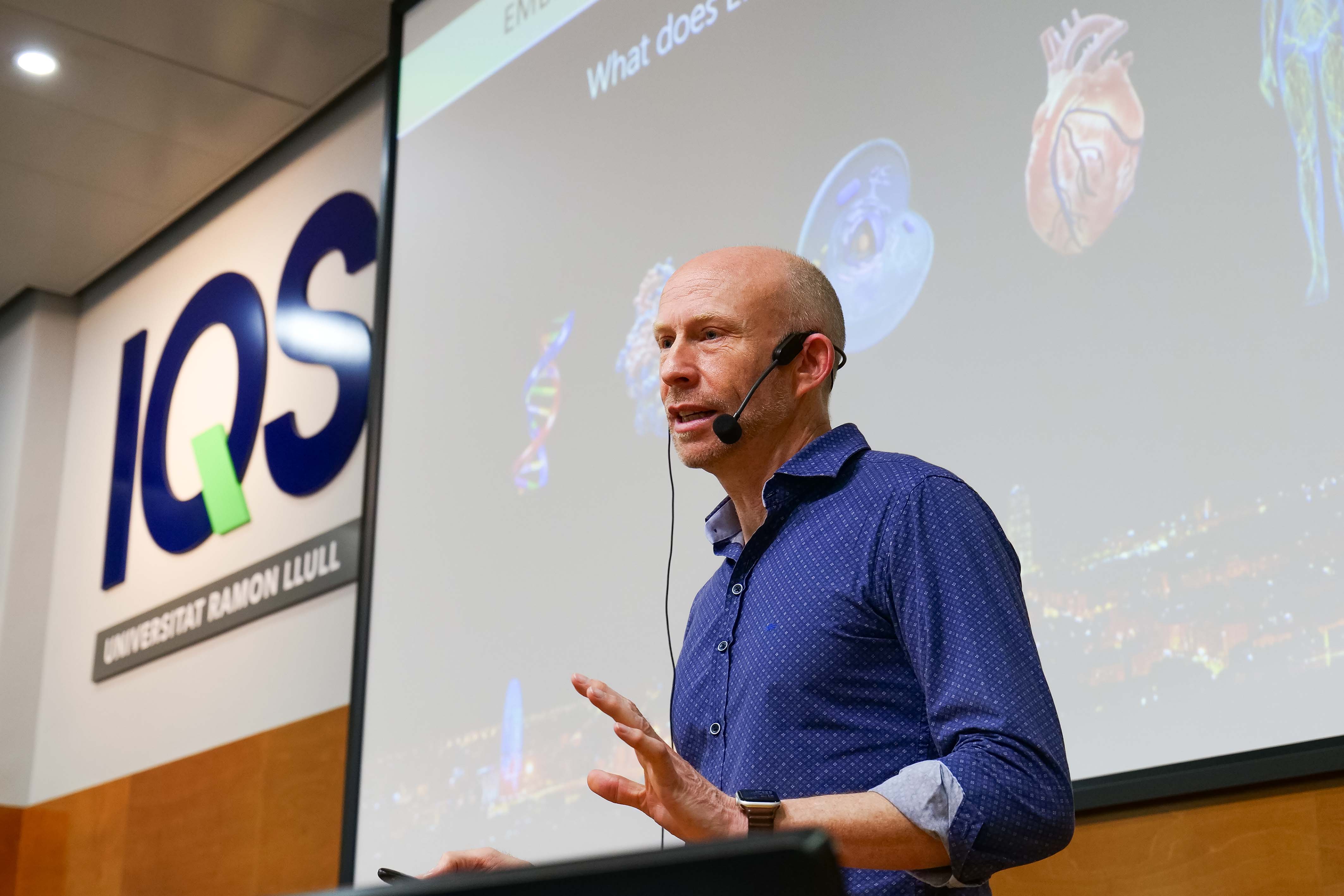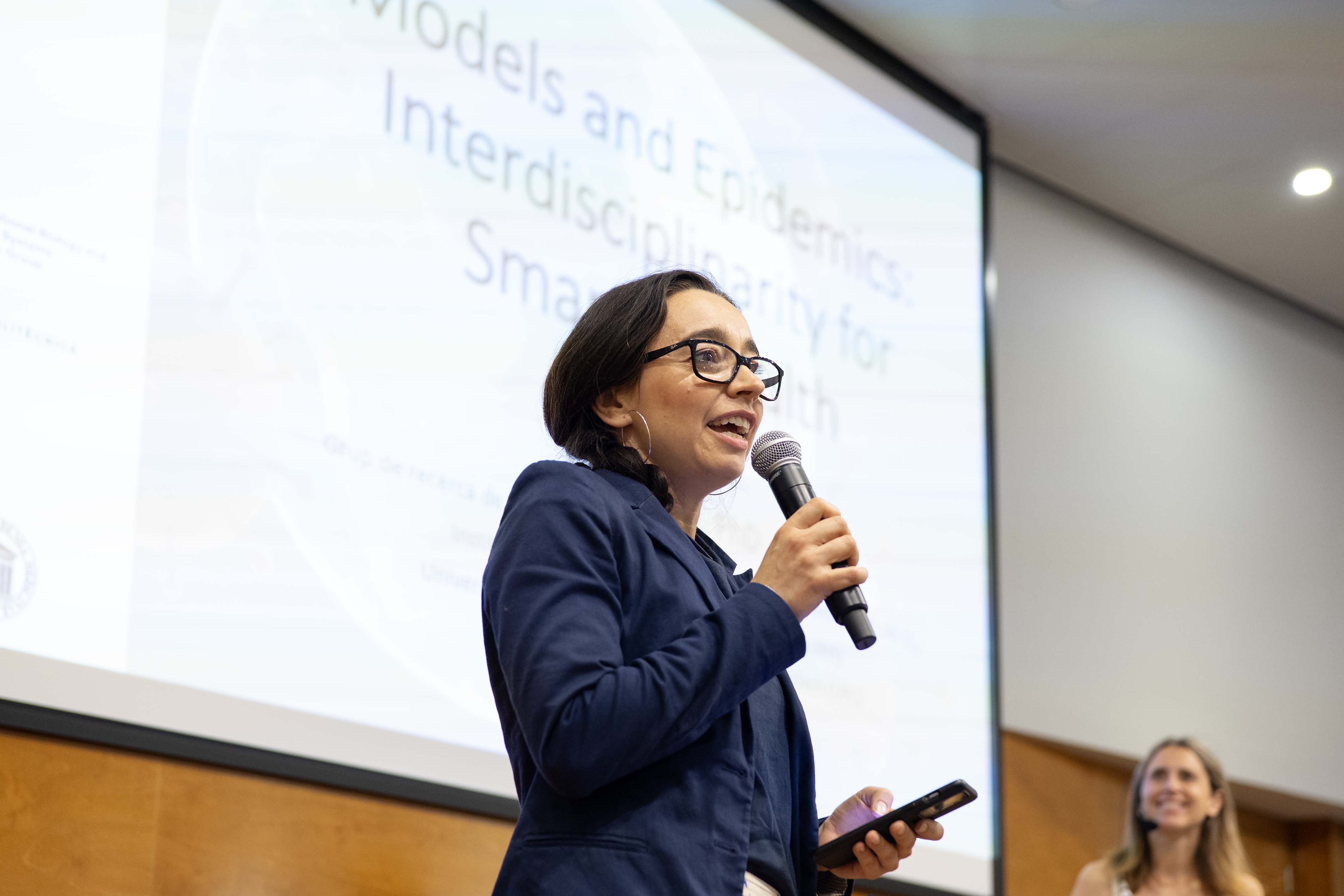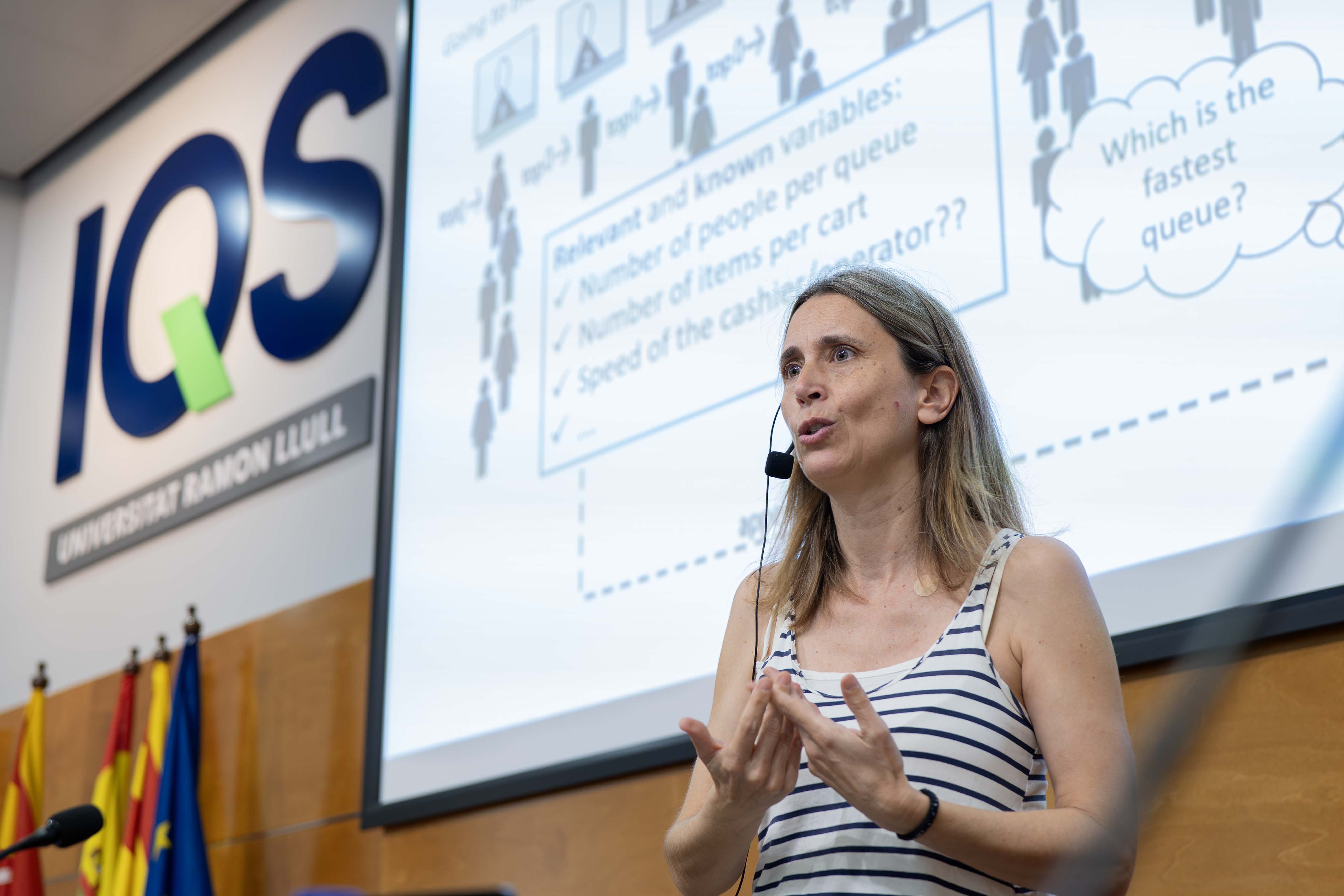IQS has launched a new conference cycle in 2025, entitled “Life in equations: from atoms to organisms.” This initiative aims to give visibility to research activity in the field of applied mathematics and the computer-aided design of new drugs and biocatalysts currently carried out by the Applied Data Analytics and Modelling (ADAMIQS), Pharmaceutical Chemistry (GQF), and Biological and Biotechnological Chemistry (GQBB) research groups at IQS. Other areas of mathematical application at IQS include the research and transfer activities of the Environmental Processes Engineering and Simulation Group (GESPA) and the Industrial Products Engineering Group (GEPI), among which the use of artificial intelligence in industrial processes, the mathematical modelling of biological systems, the simulation of social behaviour, and the simulation and optimization of chemical processes to improve sustainability stand out. Researchers involved in this range of mathematics activities at IQS have recently organized the Research Seminar in Mathematics, Simulation, and Modelling.
During the first edition of “Life in Equations,” four lectures were given by leading researchers in the field of biological modelling in our immediate environment. The cycle has allowed the scientific and academic community to learn first-hand about advances in the computational modelling of biological systems, ranging from molecular interactions to processes in the cellular, tissue, organism, and entire population fields.
Drug design applications
The first Life in Equations lecture (February 2025) was given by Dr Miquel Duran-Frigola, a computational biologist and chemist by training, Lead Scientist, and co-founder of the Ersilia Open Source Initiative. In his speech “The Ersilia Model Hub: Open Source AI for Antimicrobial Drug Discovery in Developing Countries,“ Dr Duran explained the contribution of his open model for predicting medical activity to eradicate infectious diseases in Global South countries, the ones most affected by this type of disease. Ersilia’s model includes everything from the simulation of molecular and cellular processes to epidemiological, social, and behavioural analyses.
Dr Victor Guallar, ICREA researcher at the Barcelona Supercomputing Center (BSC) and scientific director of the spinoff Nostrum Biodiscovery, offered the second lecture of the cycle (March 2025). Entitled “Artificial Intelligence and Molecular Modelling in Drug Discovery,” Dr Guallar showed how artificial intelligence is transforming drug discovery and achieving new, more effective treatments with fewer side effects. The application of this technology in the pharmaceutical industry is opening up new opportunities, as seen in the case of Polypharmacology, which focuses on the design of drugs with different, yet simultaneous routes of action.
Developmental biology applications
The third lecture (April 2025) was entitled “Describing and explaining organogenesis through computer modelling,“ presented by Dr James Sharpe, director of the European Molecular Biology Laboratory (EMBL) in Barcelona, a centre that studies the development and function of tissues and organs in health and diseases. His lecture was an example of how mathematics and computational biology can combine to decipher the processes that shape organs and advance towards a deeper understanding of developmental biology.
Epidemiological model applications
The final lecture (June 2025) was given by Dr Clara Prats, Professor of Physics at the UPC and coordinator of the BIOCOM-SC Computational Biology and Complex Systems research group. Under the title “Models and epidemics: interdisciplinarity for smarter health,“ Dr Prats showed how computational models can help find innovative and collaborative solutions in complex health-related situations, such as the COVID-19 pandemic. Dr Prats contributed her experience on the potential of mathematical models to understand complex systems, anticipate scenarios, and facilitate decision-making from an interdisciplinary perspective that connects mathematics, engineering, biomedicine, and public health.
In the opinion of the coordinators, Dr Xevi Biarnés, Dr Meritxell Sáez, and Dr Roger Estrada, the new Life in Equations cycle was a unique opportunity to show how mathematics and simulation can become fundamental tools for understanding the reality that surrounds us, to reinforce the key role of interdisciplinary research, and to open new spaces for dialogue between science, technology, and society.
In the upcoming academic year, the second edition of the Life in Equations cycle will be held, with participation from researchers at other centres and IQS itself.










